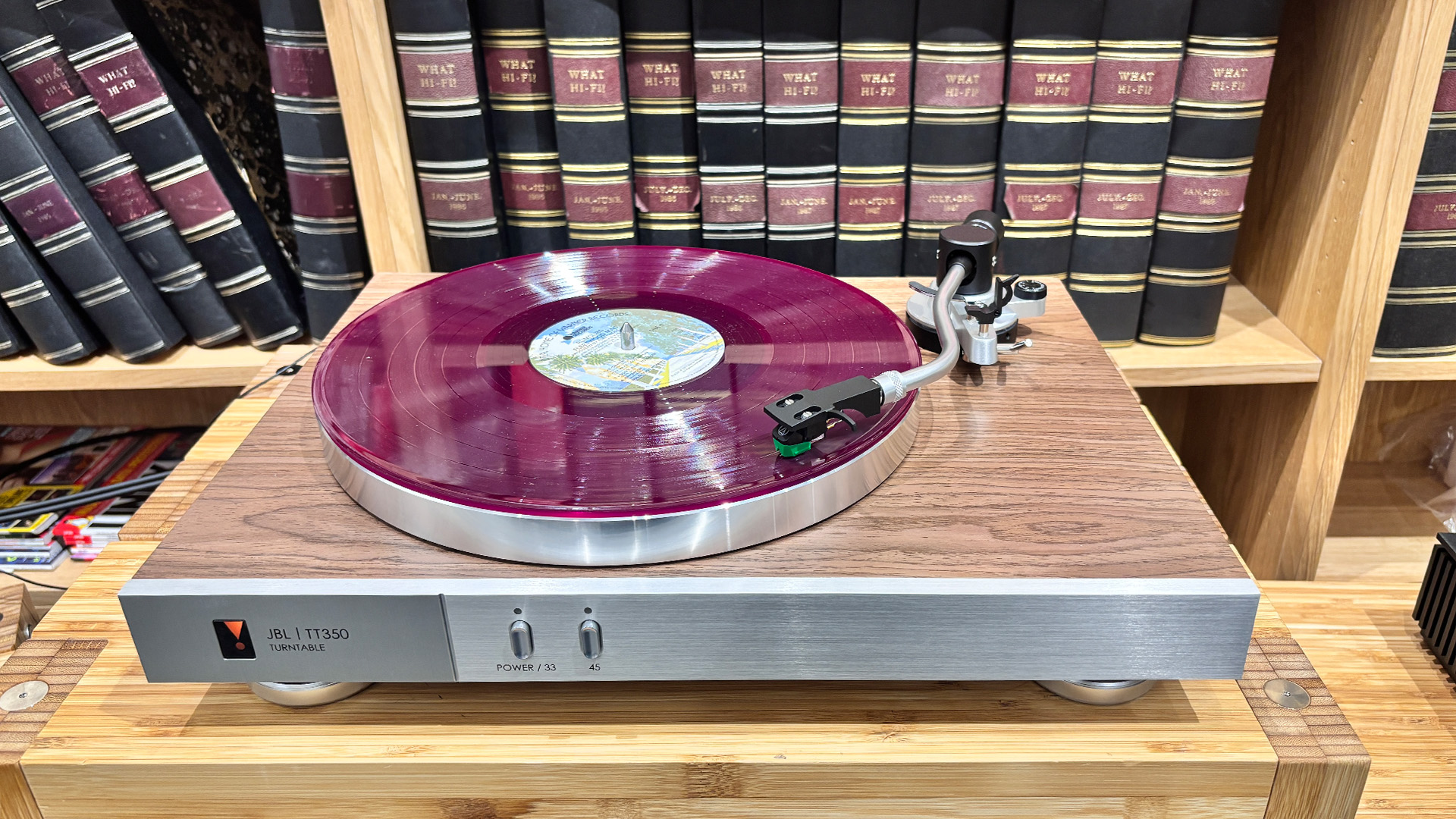Hands on with the Sennheiser Ambeo Mobility sound system
Sennheiser's immersive take on in-car audio
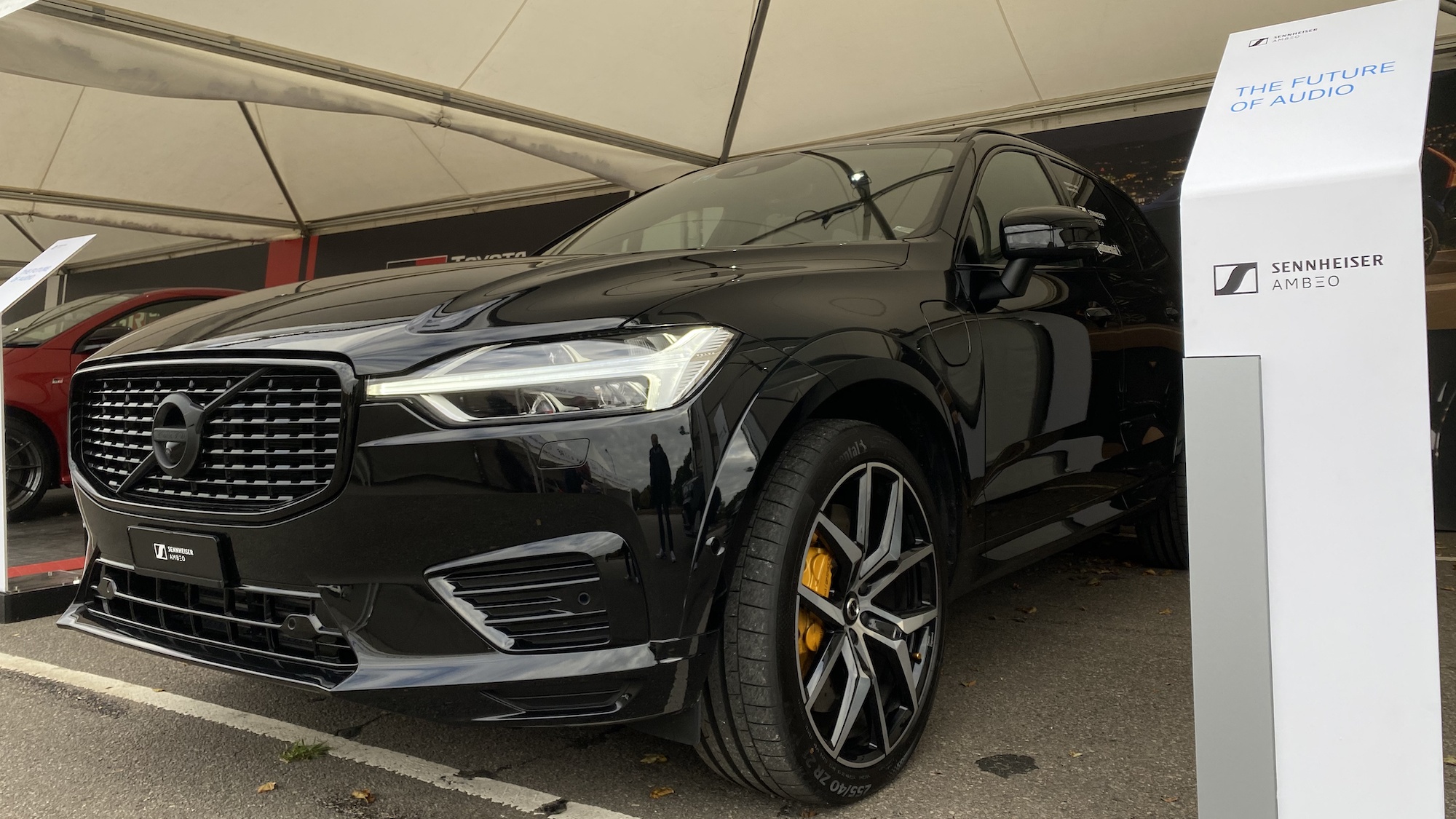
A few weeks ago we got a call from Sennheiser, asking if we wanted to hear its Ambeo Mobility sound system and to chat with CEO Dr. Andreas Sennheiser about the company’s plans for the world of automotive.
For those of you not familiar with the tech, Ambeo is Sennheiser’s take on 3D Audio and, according to the company’s website “covers immersive audio products and technologies for the entire audio signal chain, from capture to mixing and processing to reproduction”. Ambeo Mobility "is Sennheiser's ultimate immersive sound and voice intelligitbility car audio system".
Up until now, our main experience of Ambeo has been through the excellent Sennheiser Ambeo Soundbar. It’s a premium speaker that uses Ambeo processing and sound tuning to help create one of the most convincing surround sound performances we’ve ever heard from a soundbar. Needless to say, we were intrigued to hear how Ambeo would fare making the transition to in an in-car environment.
- Read our Sennheiser Ambeo Soundbar review
The background
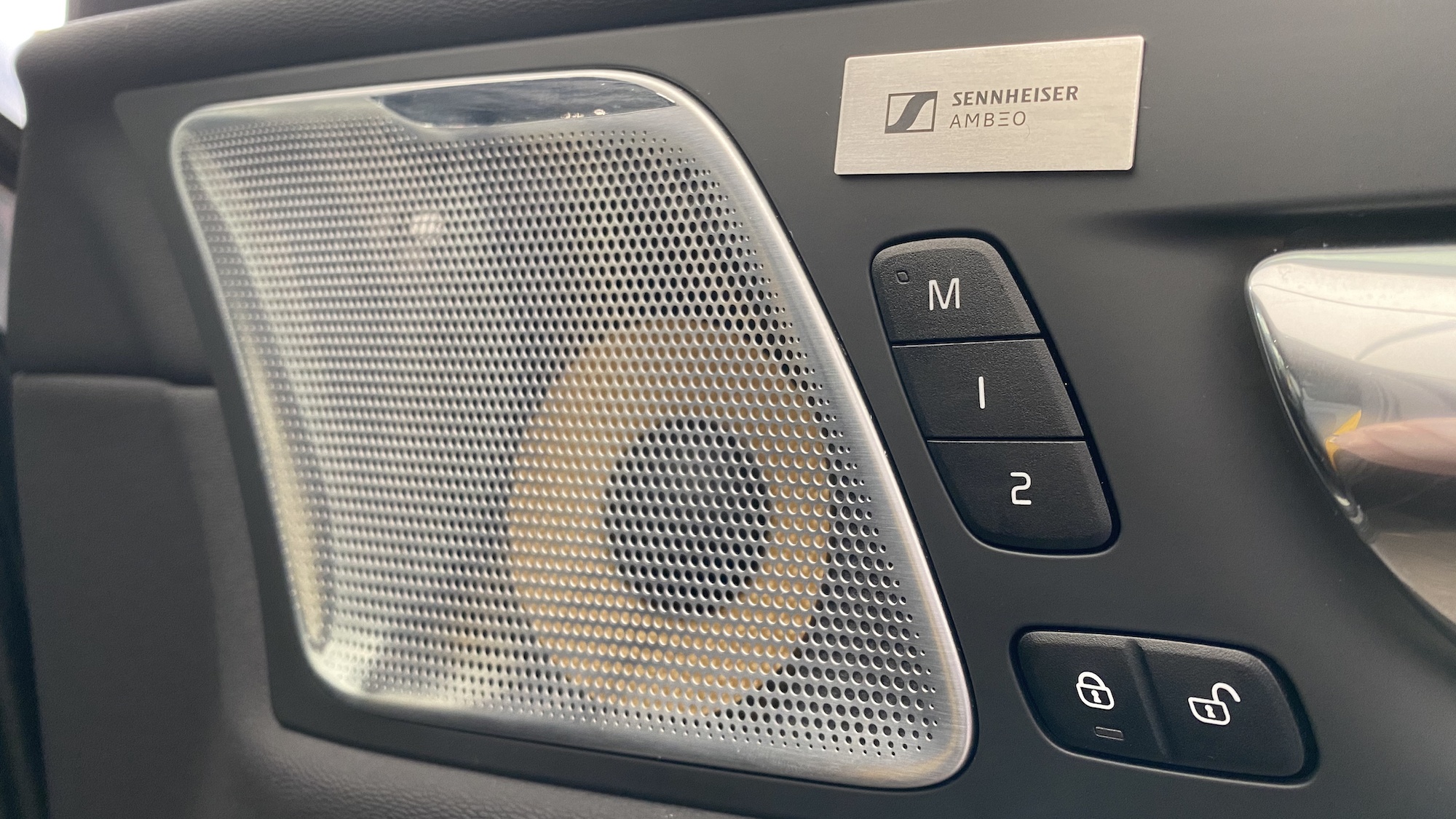
But first, a little background. At CES 2020, Sennheiser announced that it would be joining forces with Continental to develop a speakerless car audio system.
Instead of using conventional speaker drivers, the system uses special actuators to excite specific surfaces, such as the A-pillar trim, door trim, roof lining and rear shelf so they emit sound at different frequencies. It’s not a brand new idea, but one that’s found renewed interest, especially given the emergence of electric vehicles and more immersive audio formats such as Dolby Atmos Music.
“The reason we entered the automotive field is that we saw the trend towards electric and the cabin in the car changing its nature. It can become a communication capsule, an entertainment system,” says Andreas.
A speakerless system and the use of actuators has practical appeal too. It’s a space-saving proposition, and can shrink conventional car sound systems by as much as 90%, removing the need for large drive units, including subwoofers.
Get the What Hi-Fi? Newsletter
The latest hi-fi, home cinema and tech news, reviews, buying advice and deals, direct to your inbox.
Such a system allows you to generate sound where space is tight and, at the same time, reduce the weight of the components used. This is particularly handy in an electric car where you’re trying to keep weight down because of the extra heft that comes with having a battery in tow.
Speakers everywhere
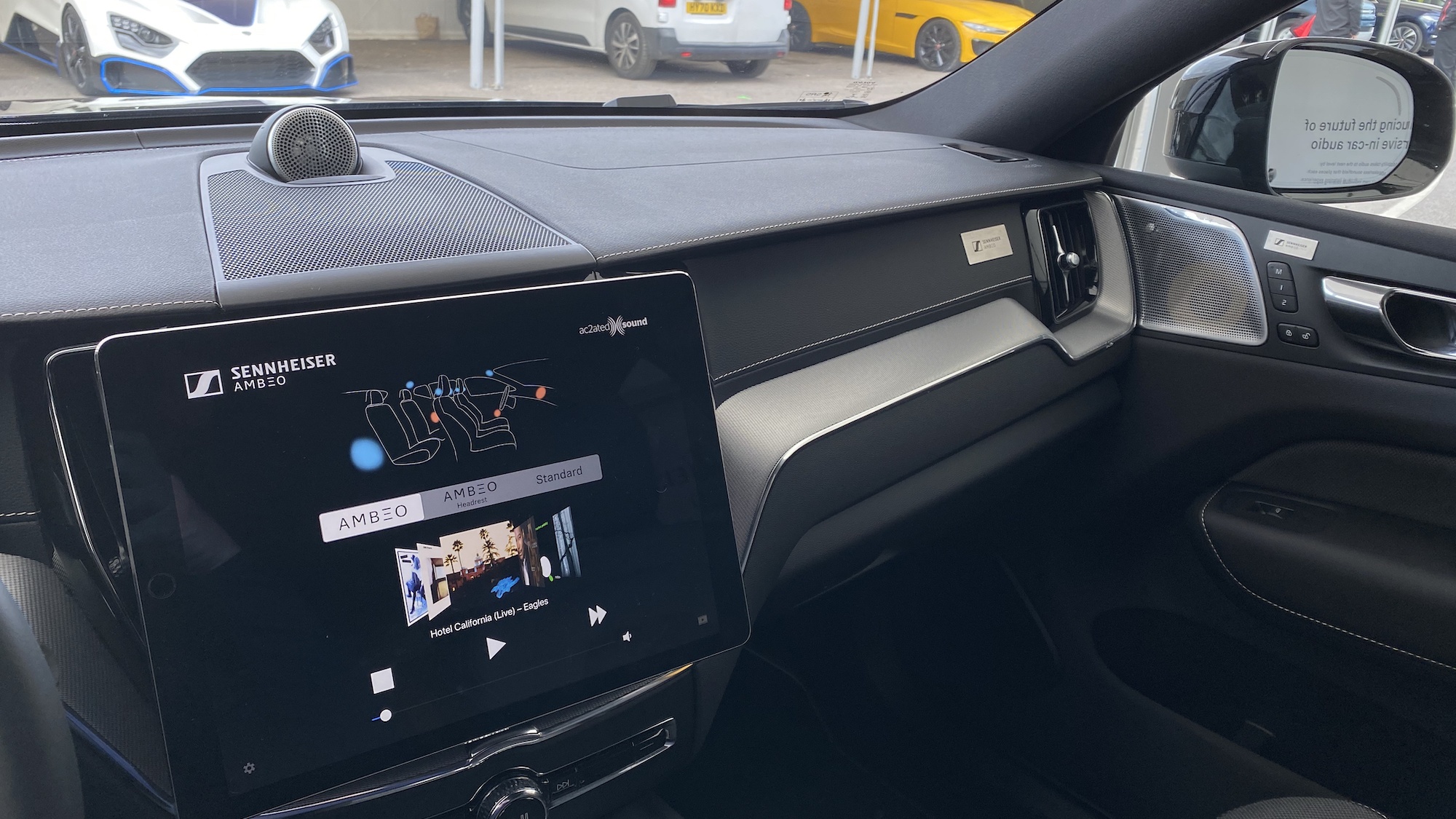
For our demo, the system was fitted to Sennheiser’s “Polaris” demo car, which looked strikingly similar to a Volvo SUV. It combines speakers from the car’s own sound system (in this case the upgraded Bowers & Wilkins set-up) with a number of actuators specifically positioned throughout the cabin.
There are 15 speakers in the demo car’s standard system and 21 with Continental’s Ac2ated Sound technology positioned in the roof lining and headrests. There’s then the additional sound tuning done by Sennheiser engineers to add to the mix (pardon the pun). As audio signals come into the system the Ambeo software analyses them, before deciding what information to send out to which speakers, for the most authentic and immersive listening experience.
According to Andreas, Ambeo for the car has been in development for around two and a half years. And, one of the key selling points of the software that powers the system is that it can use as many or as few speakers as you need - the software just adapts the sound to suit.
The concept also gives Sennheiser a couple of different proposals for OEM manufacturers. One for those who want to just plug the Ambeo software into their standard system and another for those who want a complete premium solution that also uses Continental’s Ac2ated Sound tech.
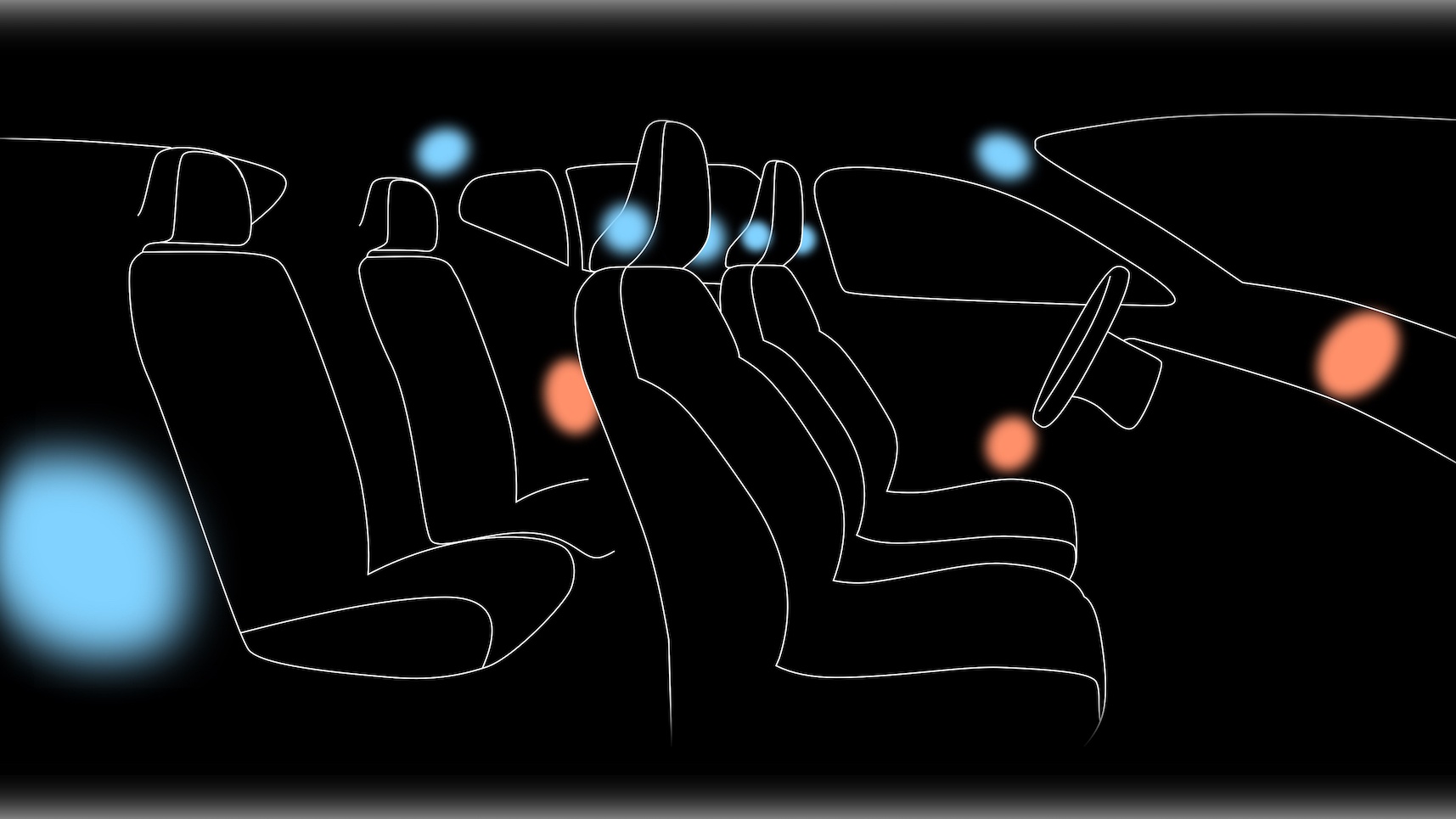
According to Andreas, the emergence of object-based audio formats such as Dolby Atmos Music and Sony 360 Reality Audio and their integration into music streaming services such as Amazon Music HD, Deezer and Tidal, can help drive home the potential of Ambeo in the car. It’s not there to compete with these formats, but to make the most of them.
“Ambeo for us is not a format, it’s more the combined intelligence of sound tuning and processing which allows us to create a better experience. The [Ambeo] soundbar is a good example, it can take lots of formats but then we redistribute it in the room better than any other soundbar."
But it's not just object-based audio formats that can benefit from Sennheiser's clever tech. "The fact our algorithm creates a bigger soundstage for stereo content is also important because there’s so much legacy content available".
Ambeo in action
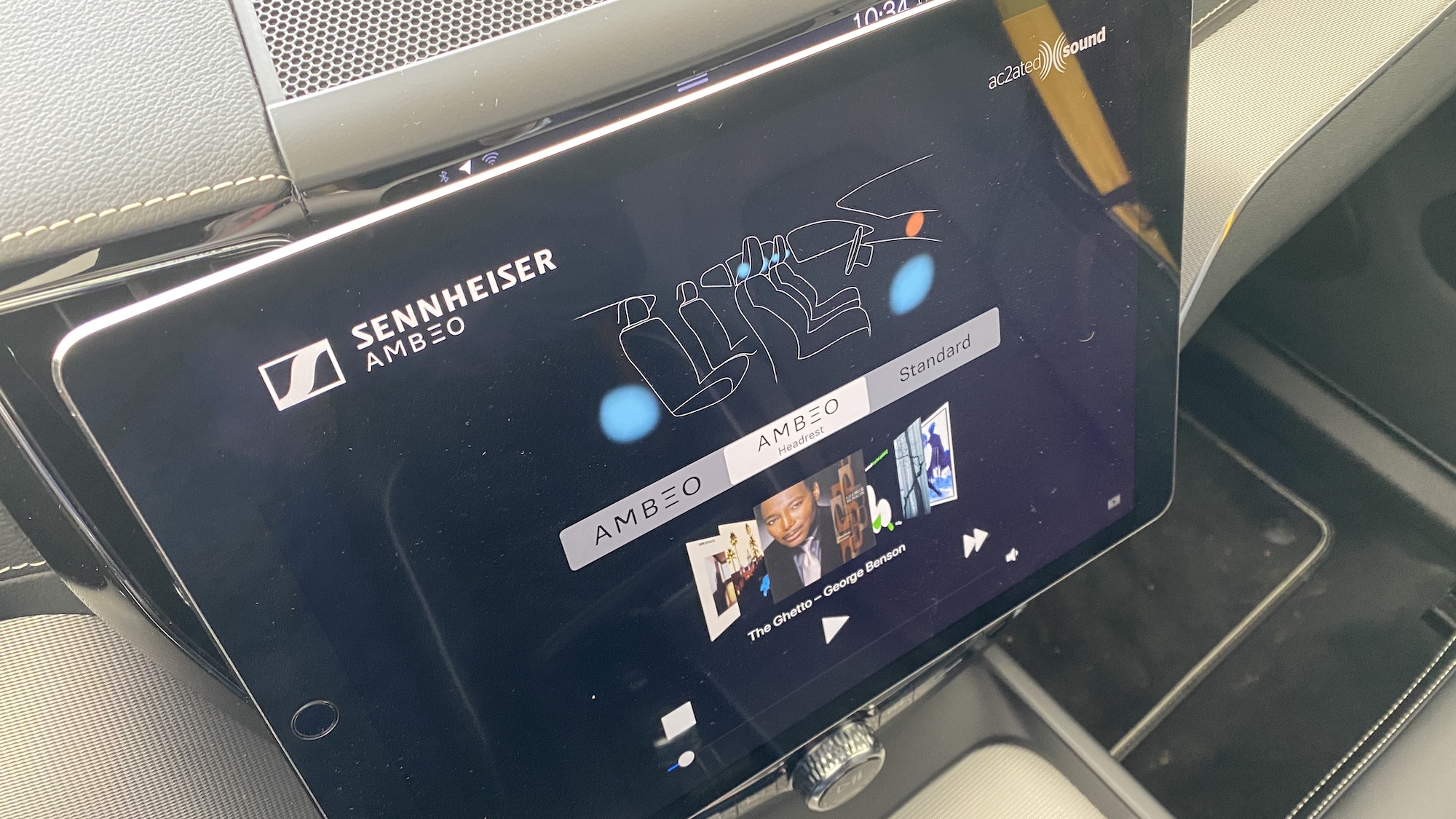
For the demo, we control the system using a tablet that allows us to switch the extra Ac2ated speakers on and off, so we can compare and contrast with the standard speaker system.
First up is a familiar test track: a live performance of Hotel California by The Eagles. We listen to the track in Ambeo mode first.
As the track begins, that classic guitar riff hangs in the ether, followed by a roar of approval from the crowd and a steady procession of thwacks to the drum kit's bass pedal. The system conjures up quite an atmosphere as the different elements all come together in a solid and cleverly assembled sound field.
Compared to other systems we’ve listened to, the Sennheiser Ambeo set-up appears to create a greater sense of spaciousness but it also provides a much clearer focus for objects. As a listener, it feels like you're immersed in the music more. There’s no sense of confusion, nor does the placement of the various elements sound forced or fake.
In some poorer systems, the surround element just feels like the audio is overstretched without any real thought for how or where the information should be placed. Here, it's obvious the Sennheiser system has much greater focus and a firmer grip on where it believes the audio information needs to go.
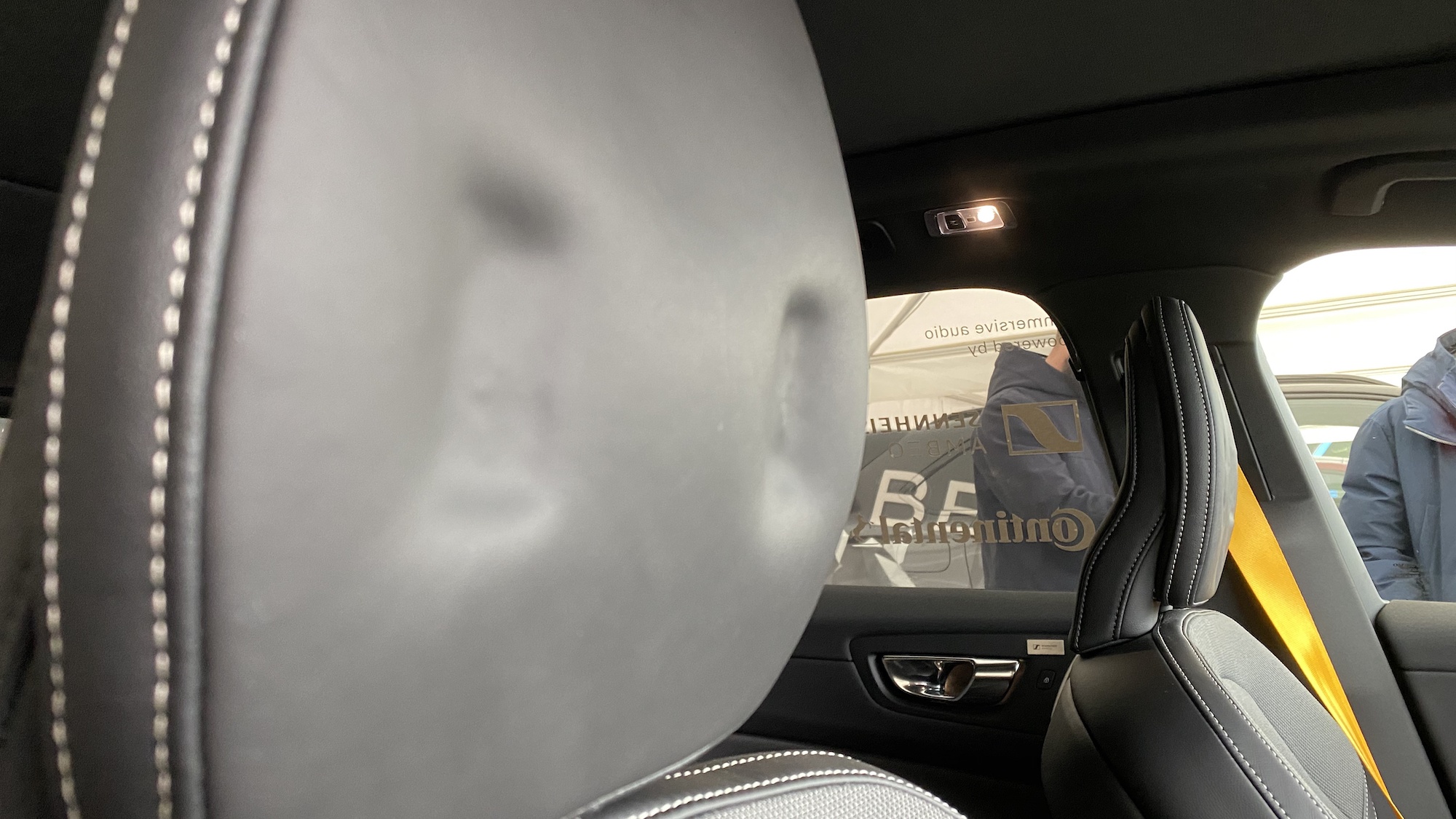
We switch to George Benson's The Ghetto and the system serves up a smooth sound. There's a good spread of information through the channels as it gets to grips with the swing and sway of the track. Benson's effortless vocal takes centre stage, rich in detail and dynamics.
When we’re out testing in-car sound systems, we normally end up reducing or turning off a lot of the surround processing modes. Sticking in the purest mode generally gives you the best sound quality possible although some systems integrate speakers and deliver surround sound more convincingly than others.
But here the Ambeo arrangement genuinely seems to add to the feeling of immersion, which bodes well when listening to tracks encoded in object-based audio.
Verdict
So, when can we expect to see the Sennheiser Ambeo Mobility system make the move from a demo car into production? Andreas hopes we’ll see the first systems hit the market in 2023 – there’s no word on which manufacturers might be on Sennheiser’s radar, but hopefully we’ll be one of the first in line for a test drive...
MORE:
Hands on with Devialet's vision for in-car audio
Burmester High-End Surround Sound System (2020 Porsche 911) review
Naim for Bentley premium audio system (2020 Bentley Continental GT) review
Andy is Deputy Editor of What Hi-Fi? and a consumer electronics journalist with nearly 20 years of experience writing news, reviews and features. Over the years he's also contributed to a number of other outlets, including The Sunday Times, the BBC, Stuff, and BA High Life Magazine. Premium wireless earbuds are his passion but he's also keen on car tech and in-car audio systems and can often be found cruising the countryside testing the latest set-ups. In his spare time Andy is a keen golfer and gamer.

